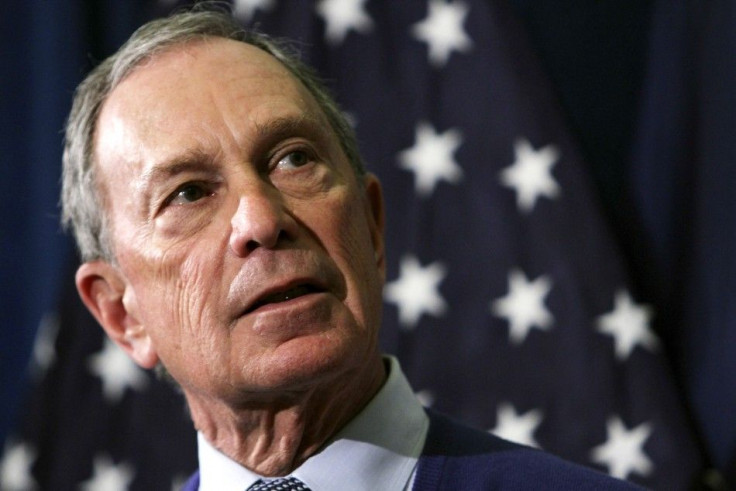New York City's Minimum Wage Clash An Echo Of National Polemics

The New York City Council is scheduled to vote Thursday to override Mayor Michael Bloomberg's veto of the Fair Wages for New Yorkers Act, which would require some city employers to pay their workers at least $11.50 an hour, or $10 hourly with benefits.
If the vote passes, businesses that receive $1 million in public funds will see their operating costs increase if any of their current hourly wage workers earn less than the new mandate. The council passed the so-called Living Wage Bill in April by 45 to 5, which is more than the two-thirds majority needed to override the mayor's veto.
The clash between the city council's efforts to raise the wage floor in a city where the federal minimum wage of $7.25 an hour at full time would barely pay the median rental price underscores the polemics occurring on both sides of the debate, not just in costly New York City but also across the country.
Last week, the libertarian Cato Institute published a report by Mark Wilson -- former deputy assistant secretary of the U.S. Department of Labor under George W. Bush -- arguing against any minimum wage laws.
There is no 'free lunch' when the government mandates a minimum wage, Wilson argues. If the government requires that certain workers be paid higher wages, then businesses make adjustments to pay for the added costs, such as reducing hiring, cutting employee work hours, reducing benefits and charging higher prices.
Wilson and others who lean toward the right on this issue argue that minimum wages are bad for the lowest hourly-wage workers because they're the first to go when companies have to make wage increases that lead to layoffs.
While labor economists agree that there can be adverse job-creation effects to raising the wage floor, they say eroding spending power -- when hourly wage growth is slower than the increase in cost of living -- is worse for America's lowest-paid workers.
While minimum wages may have modest negative effects on employment, we know that they have large negative effects on inequality, and that their relative decline explains a good chunk of inequality growth at the bottom end of the income distribution in recent decades, said Jake Rosenfeld, an assistant professor at the University of Washington's Department of Sociology who studies the relationship between declining union membership and wage erosion.
The question of whether raising the wage floor is good or bad for workers and the economy is being debated this year on Capitol Hill, most notably in the Rebuild America Act of Sen. Tom Harkin, D-Iowa, a sweeping piece of legislation introduced in March that would raise the federal minimum wage to $9.80 an hour in three phases over three years.
A more radical proposal by Rep. Jesse Jackson Jr., D-Ill., called the Catching Up to 1968 Act of 2012 would introduce a $10 federal minimum wage 60 days after enactment, a pace much faster and increase much higher than anything that has ever been proposed either in Congress or in the states. The bill, which will go nowhere, would rapidly raise the floor to a level higher than anywhere in the country outside of Santa Fe, N.M., and San Francisco -- the only two places where the minimum wage is higher than $10 an hour.
Six states have been mulling raising minimum wages on their own, but so far three of them aren't likely to see changes anytime soon.
In Connecticut, where the state minimum wage is $8.25 an hour, Senate President Donald Williams said earlier this month that a proposal to raise the wage by 50 cents over two years was officially dead.
Legislators in New Jersey and New York both let proposals to increase the hourly minimum by $1.25 fizzle in pre-adjournment legislative debates over the past week. Both states currently use the federal minimum rate.
Massachusetts -- which was the first in the nation to establish a minimum wage 100 years ago -- is still mulling an increase to its minimum hourly wage from $8 to $10 by July 2013.
Missouri will see its hourly rate increase whether or not its Supreme Court allows a ballot initiative to be put to the vote of the people later this year, which includes a minimum wage increase to $8.25 from the current $7.25. This is because voters in 2006 supported a measure to index the state's wage floor to inflation every October; this year that rate will force an adjustment to $7.40 an hour.
So far this year Rhode Island is the only state to move the floor higher after Gov. Lincoln Chafee signed a bill into law last week that will raise the state's minimum hourly wage from $7.40 to $7.75.
© Copyright IBTimes 2024. All rights reserved.






















